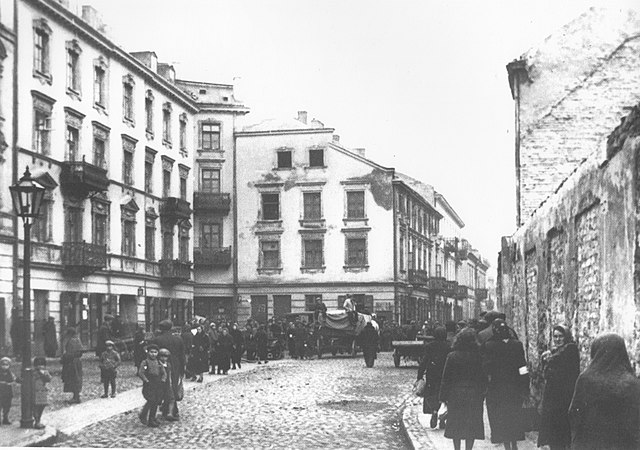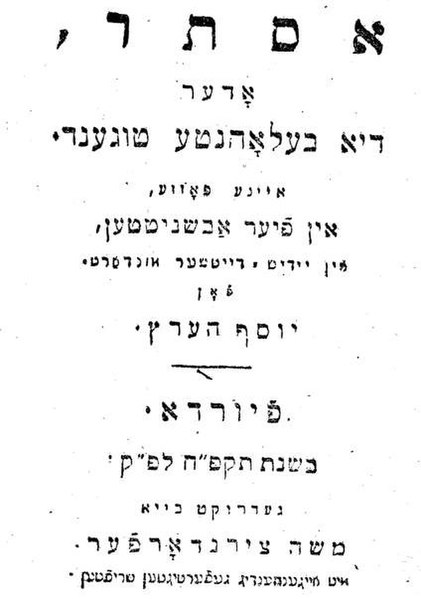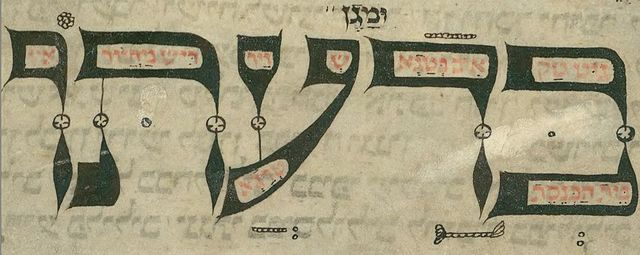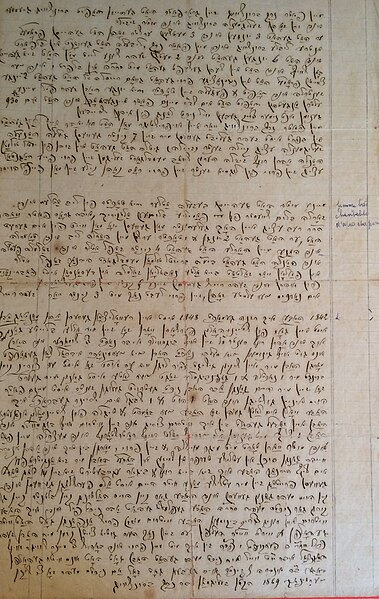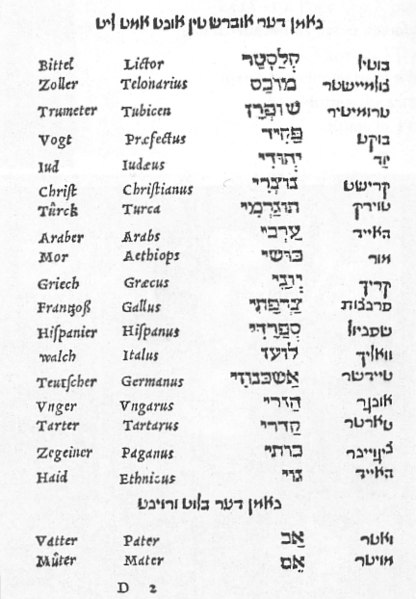Isaac Bashevis Singer was a Polish-born Jewish-American novelist, short-story writer, memoirist, essayist, and translator. Some of his works were adapted for the theater. He wrote and published first in Yiddish and later translated his own works into English with the help of editors and collaborators. He was awarded the Nobel Prize for Literature in 1978. A leading figure in the Yiddish literary movement, he was awarded two U.S. National Book Awards, one in Children's Literature for his memoir A Day of Pleasure: Stories of a Boy Growing Up in Warsaw (1970) and one in Fiction for his collection A Crown of Feathers and Other Stories (1974).
Portrait c. 1980–1990
Isaac (right) with his brother Israel Joshua Singer (1930s)
Krochmalna Street in Warsaw near the place where the Singers lived (1940 or 1941)
Singer's bench in Biłgoraj
Yiddish is a West Germanic language historically spoken by Ashkenazi Jews. It originates from 9th century Central Europe, providing the nascent Ashkenazi community with a vernacular based on High German fused with many elements taken from Hebrew and to some extent Aramaic. Most varieties of Yiddish include elements of Slavic languages and the vocabulary contains traces of Romance languages. Yiddish has traditionally been written using the Hebrew alphabet; however, there are variations, including the standardized YIVO orthography that employs the Latin alphabet.
The opening page of the 1828 Yiddish-written Jewish holiday of Purim play Esther, oder die belohnte Tugend from Fürth (by Nürnberg), Bavaria.
The calligraphic segment in the Worms Machzor. The Yiddish text is in red.
The South-West Yiddish account of the life of Seligmann Brunschwig von Dürmenach describes, among other things, the anti-Semitic events of the revolutionary year 1848. In the collection of the Jewish Museum of Switzerland.
A page from the Shemot Devarim (lit. 'Names of Things'), a Yiddish–Hebrew–Latin–German dictionary and thesaurus, published by Elia Levita in 1542



